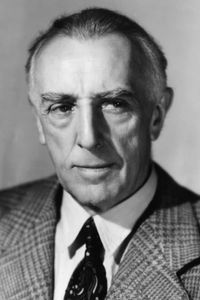Walter Hampden Dougherty, a renowned American stage actor, was born on June 30, 1879, in Brooklyn, New York. He began his acting career in London, where he made his professional debut in 1901 with the Frank Benson Stock Company. Hampden spent the next six years in England, thoroughly training as a classical actor under the guidance of esteemed professionals.
Upon returning to the United States in 1907, Hampden toured with the renowned Russian actress Alla Nazimova, presenting a series of plays by Henrik Ibsen. His extensive experience in the classical theater led him to take on the iconic role of Hamlet on Broadway not once, not twice, but three times - in 1918-1919, 1925, and 1934.
One of Hampden's most notable performances was as Edmond Rostand's Cyrano de Bergerac, a role he first portrayed in 1923 and repeated four more times on the Great White Way. His immense talent and dedication earned him the reputation as the grand old man of the American theater.
In 1925, Hampden took over the management of the Colonial Theatre, renaming it Hampden's Theatre. He christened his new venue with his second performance of Hamlet on October 10, 1925, and went on to perform with his own company until 1930. Later, Hampden played a significant role in the establishment of the American Repertory Theatre, starring as Cardinal Wolsey in William Shakespeare's Henry VIII.
Throughout his illustrious career, Hampden held the position of president of the Players' Club for 27 years, leaving a lasting impact on the American theater community. His final notable performance on Broadway was in Arthur Miller's parable of McCarthyism, The Crucible, marking the culmination of a remarkable half-century-long career.
Walter Hampden Dougherty passed away on June 11, 1955, just three weeks shy of his 76th birthday, leaving behind a legacy as one of the greatest American stage actors of his time.





























